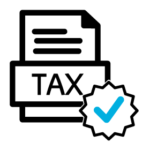Internationally endorsed guidelines for the management of returned stolen assets
Norway is committed to international cooperation to enable more effective confiscation of the proceeds of crime, for example, through the OECD and UNODC. This includes the development of internationally endorsed guidelines for the management of returned stolen assets.
Completion Status:
Commitment filtering:
The commitment is considered specific in terms of the area of intervention (the confiscation of the proceeds of crime) and the mechanism it wants to advance (guidelines for the management of returned stolen assets).
The action to fulfil this commitment is clear and is measurable in three ways: the development of guidelines for the management of returned stolen assets; the international endorsement of those guidelines, and international cooperation for more effective confiscation of the proceeds of crime by, for example, joining international initiatives with this purpose.
Evaluation:
This commitment includes three different actions to be considered in the monitoring: 1) international cooperation for more effective confiscation of the proceeds of crime, 2) the development of guidelines for the management of returned stolen assets, and 3) the international endorsement of those guidelines.
Regarding international cooperation, Norway is member of the Camden Asset Recovery Inter-agency Network (CARIN),[1] an informal inter-agency network of law enforcement and judicial practitioners working on asset tracing, freezing, seizure and confiscation.[2] Its purpose is to increase its members’ effectiveness to support the complete asset recovery process. Norway is also a member of the INTERPOL/StAR Global Focal Point Network on Asset Recovery[3] and of the Global Operational Network of Anti-Corruption Law Enforcement Authorities (GlobE Network).[4] This provides a platform for information exchange and informal cooperation to better identify, investigate and prosecute cross-border corruption offences and recover stolen assets.[5]
Norway’s Penal Code allows the sharing of recovered assets with other countries. Article 75 states that the Ministry of Justice may decide that the proceeds of any confiscation shall be divided between the Norwegian State and one or more other states. The decision should consider what expenses have been incurred and in which countries harmful effects have occurred and assets been acquired.[6]
The idea of developing non-binding guidelines on the management, use and disposal of frozen, seized and confiscated assets was suggested by the Open-Ended Intergovernmental Working Group on Asset Recovery, at the fifth session of the Conference of the States Parties to the United Nations Convention against Corruption, held in Vienna in 2015 and attended by Norway.[7] The working group recommended that states parties and UNODC continue sharing experience on the topic and identify best practices as necessary, building on existing resources that address the administration of seized assets. It also recommended that they consider developing non-binding guidelines on the issue. To this end, states parties adopted the Resolution 5/3 on “Facilitating international cooperation in asset recovery”. In relation to this, UNODC organised two meetings in 2014 and 2015 with experts on the topic from different countries. The discussions identified issues confronting countries when designing a legal and institutional framework and institutional capacities for the management of assets.[8] Issues included interim management of assets prior to a final confiscation order, determination of disposals after final confiscation, and institutional arrangements to dispose of assets.[9]
The recommendation of exchanging knowledge on the topic and best practices was subsequently raised at the international expert meeting on the management and disposal of recovered and returned stolen assets, including in support of sustainable development, held in 2017 in Addis Ababa. The meeting’s concept note highlights “the opportunity for the international community to take cognisance of and analyse existing experiences with a view to identifying good practices and possibly embarking on the development of principles to offer guidance to the States parties to the Convention in the administration and return of stolen assets”.[10] It also emphasises that, to be useful, this exercise would have to reflect the current “state of play” and be based on deep understanding of different national legal frameworks and approaches to the issue.
However, to date, there is no evidence of the development or endorsement of these guidelines, therefore this part of the commitment is not fulfilled.
| Challenges to effective commitment implementation |
| The challenges to developing guidelines for the management of returned stolen assets are based on the nature of the task at hand. As already recognised in the 2014 meeting, the approaches that countries had taken to creating systems for the management and disposal of seized and confiscated assets were so diverse that it was not considered opportune at that stage to purse the development of guidelines on the matter.[11] In addition, commitments involving several countries’ participation are challenging in themselves in terms of coordinating several stakeholders and achieving agreement on the guidelines’ content. It also requires time and resources to understand in depth the national legal frameworks and approaches that countries have taken on the topic, as identified at the international expert meeting in Addis Ababa in 2017.
|
| Opportunities to accelerate commitment implementation |
| The fact that this commitment involves several stakeholders represents an opportunity as well as a challenge, in the sense that its fulfilment does not depend on the will and capacity of one country, and others can take leadership in pushing the commitment forward. For example, as an elected member of the UN Security Council in 2021 and 2022, Norway could take a leading role, incorporating into the Council’s agenda measures to increase international cooperation in the confiscation of stolen assets, as part of combatting financial crime. This type of commitment is also an opportunity in the sense that the topic is of interest to many countries, and therefore has a higher chance of remaining on the international agenda.
|
| Recommendations |
|
[1] Stolen Asset Recovery Initiative (StAR), Directory of Asset Recovery Networks, https://www.unodc.org/documents/treaties/UNCAC/WorkingGroups/workinggroup2/2018-June-6-7/V1803851e.pdf
[2] Camden Asset Recovery Inter-Agency Network (CARIN), https://www.carin.network/
[3] Stolen Asset Recovery Initiative (StAR), Directory of Asset Recovery Networks, https://www.unodc.org/documents/treaties/UNCAC/WorkingGroups/workinggroup2/2018-June-6-7/V1803851e.pdf
[4] GlobE Network, GlobE Membership, https://globenetwork.unodc.org/globenetwork/en/membership.html
[5] GlobE Network, About the GlobE Network, https://globenetwork.unodc.org/globenetwork/en/about.html#:~:text=What%20is%20the%20GlobE%20Network,offences%20and%20recover%20stolen%20assets.
[6] Norwegian Ministry of Justice and Public Security, The Penal Code, https://lovdata.no/dokument/NLE/lov/2005-05-20-28
[7] United Nations Office on Drugs and Crime (UNODC), Report on the meeting of the Open-ended Intergovernmental Working Group on Asset Recovery, held in Vienna on 3 and 4 September 2015, https://www.unodc.org/documents/treaties/UNCAC/WorkingGroups/workinggroup2/2015-September-3-4/V1506466e.pdf
[8] United Nations Office on Drugs and Crime (UNODC), International expert meeting on the management and disposal of recovered and returned stolen assets, including in support of sustainable development, 14 to 16 February 2017, https://www.unodc.org/documents/corruption/AddisEGM2017/Report_Addis.pdf
[9] United Nations Office on Drugs and Crime (UNODC), Compilation on the Management and Disposal of Seized and Confiscated Assets, https://www.unodc.org/documents/corruption/AddisEGM2017/Presentations/Addis_Presentation_Hermione_Cronje.pdf
[10] United Nations Office on Drugs and Crime (UNODC), International Expert Meeting on the management and disposal of recovered and returned stoles assets, including in support of sustainable development, https://www.unodc.org/documents/corruption/AddisEGM2017/Concept_Note_Beyond_Addis.pdf
[11] United Nations Office on Drugs and Crime (UNODC), Compilation on the Management and Disposal of Seized and Confiscated Assets, https://www.unodc.org/documents/corruption/AddisEGM2017/Presentations/Addis_Presentation_Hermione_Cronje.pdf

